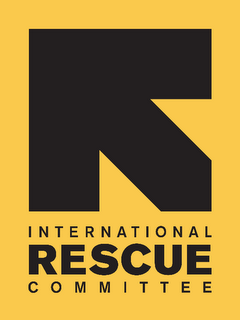June 15th - Destination Banda Aceh
Thursday evening, June 15th. The time has come. I have said my goodbyes to my family, friends and my fiancée and I am about  to embark on a journey that will take me to Banda Aceh, Indonesia, where I will be working as Community Driven Regeneration (CRD) volunteer for the International Rescue Committee (IRC). This Blog is meant to keep family, friends, acquaintances and anyone else interested informed about my work, my experiences and my thoughts during my six months stay in Aceh.
to embark on a journey that will take me to Banda Aceh, Indonesia, where I will be working as Community Driven Regeneration (CRD) volunteer for the International Rescue Committee (IRC). This Blog is meant to keep family, friends, acquaintances and anyone else interested informed about my work, my experiences and my thoughts during my six months stay in Aceh.
Let me start by briefly introducing myself and my employer and by a providing a short description of the IRC programme in Indonesia as well as my function as CDR volunteer.
I have recently graduated as a sociologist at the Erasmus University of Rotterdam, with a specialisation in urban policy. Growing up, I have had the fortune of discovering different parts of the world. I was born in Bangladesh and I have lived in a number of countries in north-eastern Africa and in Geneva, Switzerland. Over the past couple of years I have taken a number of steps towards starting an international carrier in the field of development. I have worked for Oxfam Novib's Information and Service desk since 2002, which has helped me gain insight into the workings of an international development organisation. Moreover, by choosing relevant courses and writing about pertinent issues I have steered my study as much as possible in the direction of development studies. More importantly, I have followed a challenging internship programme in the South of Mozambique where I have conducted an academic research on the formation and functioning of Community Development Committees. Finally, I have spent the past months volunteering at the Oxfam Novib office in Nairobi, where my main task consisted of revising training materials used in the office's main capacity building programme; strengthening civil society in Somalia and Sudan.
 The IRC is an international non-governmental organisation with a strong focus on refugees: it is a global leader in emergency relief, rehabilitation, protection of human rights, post-conflict development, resettlement services and advocacy for those uprooted or affected by conflict and oppression. The IRC has worked in Indonesia since 1999 in a consortium including, among others, Stichting Vluchteling (SV). Its presence in Indonesia is a result of the crisis caused by an economic crash in 1997, the 1998 fall of President Suharto, the subsequent conflicts in de Moluccas, Central Sulawesi in East Timor and the protracted conflict in Aceh between government troops and separatist fighters. In 2004, the IRC's programme was interrupted to provide emergency relief to the areas affected by the December 26th Tsunami. Now, a year and a half later, the emergency phase has shifted to reconstruction. The CDR programme forms the core of this new phase.
The IRC is an international non-governmental organisation with a strong focus on refugees: it is a global leader in emergency relief, rehabilitation, protection of human rights, post-conflict development, resettlement services and advocacy for those uprooted or affected by conflict and oppression. The IRC has worked in Indonesia since 1999 in a consortium including, among others, Stichting Vluchteling (SV). Its presence in Indonesia is a result of the crisis caused by an economic crash in 1997, the 1998 fall of President Suharto, the subsequent conflicts in de Moluccas, Central Sulawesi in East Timor and the protracted conflict in Aceh between government troops and separatist fighters. In 2004, the IRC's programme was interrupted to provide emergency relief to the areas affected by the December 26th Tsunami. Now, a year and a half later, the emergency phase has shifted to reconstruction. The CDR programme forms the core of this new phase.The CDR component, in my opinion, is the most interesting part of the IRC's entire programme. It clearly marks the transition from emergency relief to reconstruction: from implementing to facilitating the development process. The CDR programme seeks to empower local communities to assume responsibility for their own development. It places them in 'the driver's seat'. Active participation and social inclusion are central to this approach; they create a sense of ownership which, in turn, is crucial for the sustainability of the programme. The CDR programme consists of three stages: (1) the implementation of Quick Impact Programmes, (2) community mapping and (3) Integrated Community Programs (ICPs). The first two stages have been completed and the ICPs are now full on in progress. I will be writing more about the ICPs in the next logs; my function as CDR volunteer largely consists of monitoring these programmes.
Although the CDR programme receives funds from a number of public and private sources, SV is the main donor. SV shares the same mandate as the IRC; to assist those uprooted or affected by conflict and oppression. This Blog therefore also serves to inform SV donors on how their valuable contributions are spent.
That is all for my first log. Please do not hesitate to comment on my Blog or let me know if you have a suggestion to on how it can be improved. I will try to answer all your questions. I am counting on your feedback.

0 Comments:
Post a Comment
<< Home